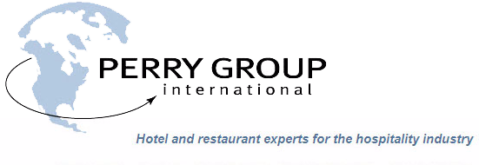Advice from a restaurant safety expert can lower the risk of foodservice lawsuits and makes your restaurant safer for customers and staff. This also lowers a restaurant risk of failure. But, you don’t have to be an expert to take some sensible precautions. In 8 years covered by a California OSHA study, 135 workplace injuries were reported. That’s not a terribly high number when you consider the number of employees in and out of restaurants and the number of hours on payroll. But, the incidents include 18% burns, 11% falls, 8% amputations, and 6% chemical exposures. On the other hand, 11 falls were fatalities, and amputations are not as common in other service fields. Any restaurant will benefit from the loss prevention suggestions offered by their insurance provider or restaurant safety expert. This applies to reducing risks from Human Resource issue, such as discrimination and hostile workplace stresses. The focus here is on tips to reduce and avoid customer litigation: 1. Allergies People with serious food allergies – to gluten, eggs, nuts, dairy, wheat, and so on – are gaining in their sense of entitlement to menus that at least allow for their needs. With some reactions fatal, the customer concerns are very real. The restaurant’s ability to comply with their specific needs may be another matter. Good communication can resolve this connect. If we can assume the restaurant means no harm, it can commit itself to full disclosure on ingredients and process. A potential high expense resolution lies in requiring restaurants to accommodate people with allergies under the American with Disabilities Act. So, be advised to revue menus for disclosure language and food preparation for non-allergic alternatives. 2. Purchasing Contamination will enter the restaurant from outside. But, the restaurant must control what it can. Install a thorough and irrevocable process for purchasing and receiving food shipments. Rely on safe vendors. Order USDA inspected meats. Order inspected eggs. Order shellfish from Certified Shellfish Suppliers, and so on. 3. Receiving Ask your manager to prepare checklists and procedures for safe receiving and handling as part of your restaurant business plan. Receive materials through a firm process of checklists available for audit and review. Receive deliveries only when you can pay attention. Check temperatures and any signs of thawing. Store foods immediately in prepared and dedicated areas avoiding cross-contamination. Refuse any item not meeting requirements. 4. Sanitation Kitchen equipment and cooking processes must follow sanitation guidelines to prevent food-borne contaminants. Cross-contamination transfers harmful bacteria from one foodstuff to another – by hand, utensil, or surface. Disassemble slicers, blenders, mixers, and utensils. Clean parts, cookware, equipment, and cutting boards with hot soapy recommended sanitizers. Wash fruits and clean vegetables separately. Wash, rinse, and sanitize surfaces and counter tops. 5. Hygiene Personal cleanliness takes on an incremental seriousness among restaurant personnel from front-of-house to the back. Uniforms are recommended and should be cleaned regularly according to process aimed at cleaning the fabrics thoroughly. Aprons should not be worn into restrooms or around contaminating environments like trash dumpsters. Wear shoes protected against slip and falls and with soles that resist transferring contaminants. Wash hands frequently, keep nails trimmed and clean, restrain hair, and leave all jewelry at home. Avoid smoking, chewing gum, and sneezing or coughing without protection. Wear plastic gloves as frequently as possible, but change the gloves between different functions. Most states and cities have more specific guidelines and inspection ordinances. And, they get more complicated as time goes on. The most common complaint among all small business owners is the need to comply with regulations. Consider the sort of complaints and restaurant lawsuits reported in RestaurantsNews.com. It is also true that foodservice is among the highest growth industry sectors in the economy. What you need to do to step up to the plate is good intentions, a helpful restaurant safety expert, a foundation in best business practices, and documented safety and training programs.
Share this post





